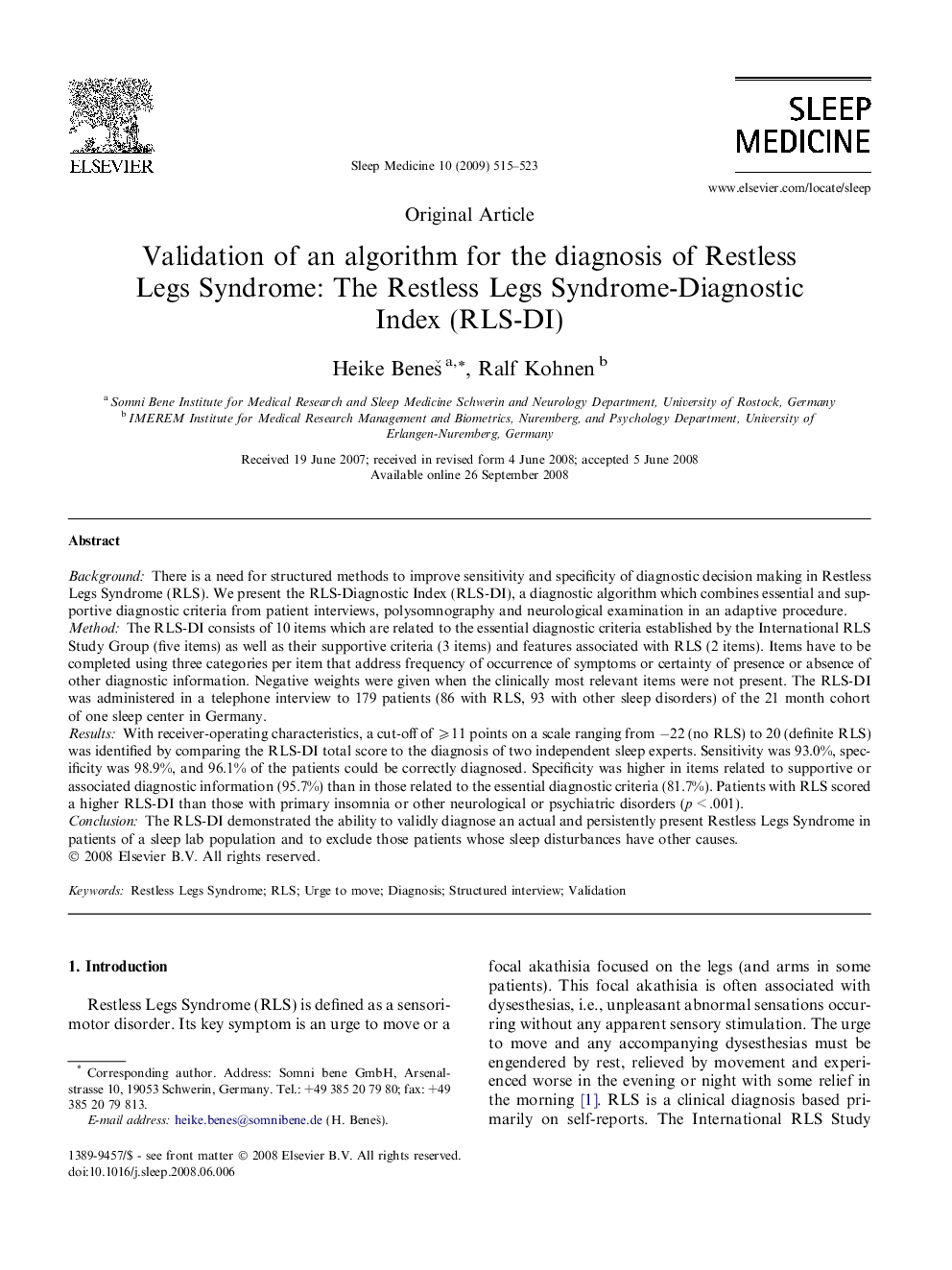| کد مقاله | کد نشریه | سال انتشار | مقاله انگلیسی | نسخه تمام متن |
|---|---|---|---|---|
| 3177033 | 1200287 | 2009 | 9 صفحه PDF | دانلود رایگان |

BackgroundThere is a need for structured methods to improve sensitivity and specificity of diagnostic decision making in Restless Legs Syndrome (RLS). We present the RLS-Diagnostic Index (RLS-DI), a diagnostic algorithm which combines essential and supportive diagnostic criteria from patient interviews, polysomnography and neurological examination in an adaptive procedure.MethodThe RLS-DI consists of 10 items which are related to the essential diagnostic criteria established by the International RLS Study Group (five items) as well as their supportive criteria (3 items) and features associated with RLS (2 items). Items have to be completed using three categories per item that address frequency of occurrence of symptoms or certainty of presence or absence of other diagnostic information. Negative weights were given when the clinically most relevant items were not present. The RLS-DI was administered in a telephone interview to 179 patients (86 with RLS, 93 with other sleep disorders) of the 21 month cohort of one sleep center in Germany.ResultsWith receiver-operating characteristics, a cut-off of ⩾11 points on a scale ranging from −22 (no RLS) to 20 (definite RLS) was identified by comparing the RLS-DI total score to the diagnosis of two independent sleep experts. Sensitivity was 93.0%, specificity was 98.9%, and 96.1% of the patients could be correctly diagnosed. Specificity was higher in items related to supportive or associated diagnostic information (95.7%) than in those related to the essential diagnostic criteria (81.7%). Patients with RLS scored a higher RLS-DI than those with primary insomnia or other neurological or psychiatric disorders (p < .001).ConclusionThe RLS-DI demonstrated the ability to validly diagnose an actual and persistently present Restless Legs Syndrome in patients of a sleep lab population and to exclude those patients whose sleep disturbances have other causes.
Journal: Sleep Medicine - Volume 10, Issue 5, May 2009, Pages 515–523